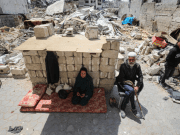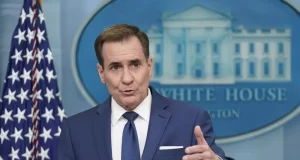Palestine, 22 April, 2024 As the conflict between Israel and Gaza enters its sixth month, the situation in Ramallah reflects a sense of helplessness and heartbreak. Amidst this despair, a quote from Lyndsey Stonebridge’s book on Hannah Arendt offers a glimmer of hope: “It is when the experience of powerlessness is at its most acute, when history seems at its most bleak, that the determination to think like a human being, creatively, courageously, and complicatedly matters the most.” Yet, despite this sentiment, questions linger over whether Palestinians and Israelis are succeeding in embracing such resilience.
Several stark realities have come to the forefront amidst this prolonged conflict. The resurgence of the Jewish ultra-right in Israel, characterized by an uncompromising expansionist agenda, has exacerbated tensions. The Gaza Strip and the West Bank have both undergone transformative changes, with settlements expanding and Palestinians facing increasing restrictions on their land.
For 75 years, Palestinians have sought recognition for the injustices inflicted upon them since the events of 1948. However, the current situation only compounds this tragedy, leaving many Palestinians contemplating the loss of their homeland altogether.
The conflict has also highlighted the failure of secular liberals in Israel to challenge the prevailing militaristic stance. A distressing lack of willingness to pursue peace and a growing acceptance of violence against Palestinians prevail among many Israelis.
The scale of violence in Gaza, with over 33,000 casualties, underscores the urgent need for a shift in approach. The enduring support of the US for Israel further complicates efforts to achieve a resolution.
As the conflict persists, concerns arise about the long-term implications for both Palestinians and Israelis. The ongoing struggles in the West Bank, coupled with economic hardships, paint a grim picture of the future.
Amidst the chaos, there remains a glimmer of hope for reconciliation. However, achieving peace will require a fundamental shift in attitudes and policies on both sides. Only then can Palestinians and Israelis hope to coexist in the land they both call home.















